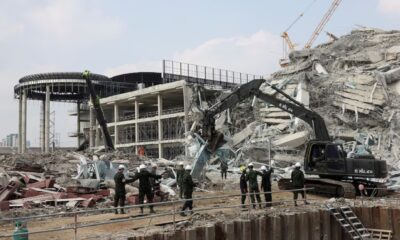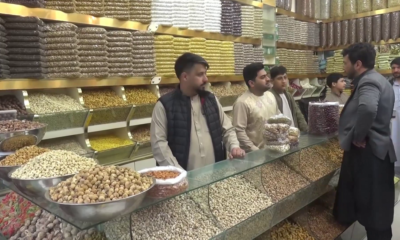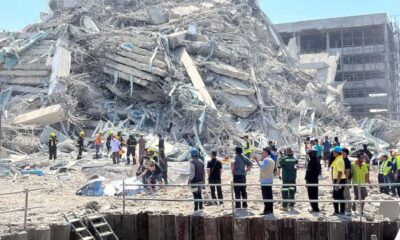Regional
Nine survivors pulled from Turkey’s rubble as earthquake death toll passes 40,000
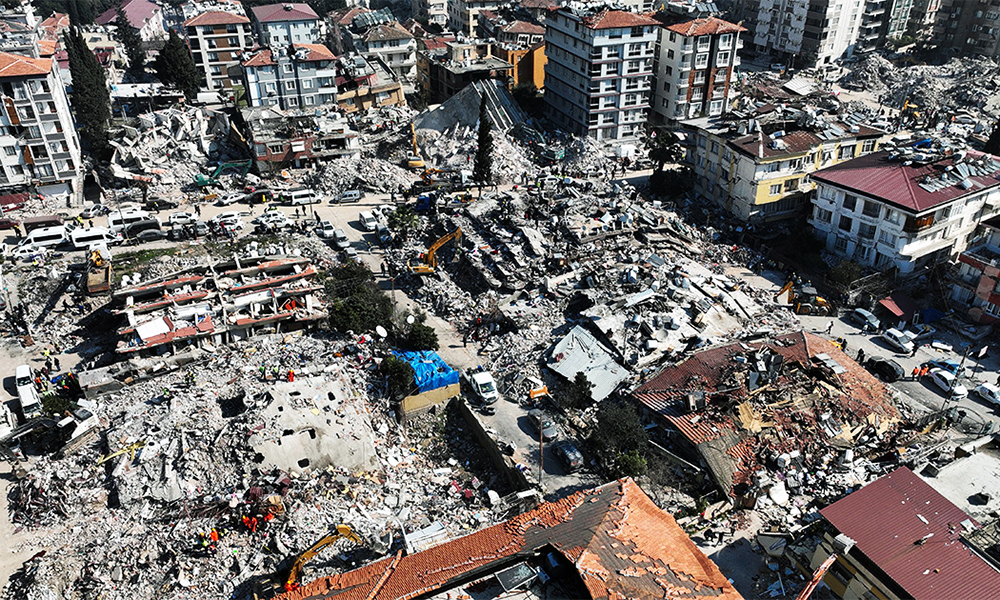
Nine survivors were rescued from the rubble in Turkey on Tuesday, more than a week after a massive earthquake struck, as the focus of the aid effort shifted to helping people now struggling without shelter or enough food in the bitter cold, Reuters reported.
The disaster, with a combined death toll in Turkey and neighbouring Syria exceeding 41,000, has ravaged cities in both countries, leaving many survivors homeless in near-freezing winter temperatures.
Turkish President Tayyip Erdogan has acknowledged problems in the initial response to the 7.8 magnitude quake that struck early on Feb. 6 but has said the situation is now under control.
“We are facing one of the greatest natural disasters not only in our country but also in the history of humanity,” Erdogan said in a televised speech in Ankara.
Those rescued on Tuesday included two brothers, aged 17 and 21, pulled from an apartment block in Kahramanmaras province, and a Syrian man and young woman in a leopard-print headscarf in Antakya rescued after over 200 hours in the rubble. There could be further people alive still to find, said one rescuer.
But U.N. authorities have said the rescue phase is coming to a close, with the focus turning to shelter, food and schooling, read the report.
“People are suffering a lot. We applied to receive a tent, aid, or something, but up to now we didn’t receive anything,” said Hassan Saimoua, a refugee staying with his family in a playground in Turkey’s southeastern city of Gaziantep.
Saimoua and other Syrians who had found refuge in Gaziantep from the war at home but were made homeless by the quake used plastic sheets, blankets and cardboard to erect makeshift tents in the playground.
“The needs are huge, increasing by the hour,” said Hans Henri P. Kluge, the World Health Organization’s director for Europe. “Some 26 million people across both countries need humanitarian assistance.”
“There are also growing concerns over emerging health issues linked to the cold weather, hygiene and sanitation, and the spread of infectious diseases – with vulnerable people especially at risk.”
‘DAD, AFTERSHOCK!’
At a Turkish field hospital in the southern city of Iskenderun, Indian Army Major Beena Tiwari said patients had initially arrived with physical injuries but that was changing.
“Now more of the patients are coming with post-traumatic stress disorder, following all the shock that they’ve gone through during the earthquake,” she said.
Families in both Turkey and Syria said they and their children were dealing with the psychological aftermath of the quake, Reuters reported.
“Whenever he forgets, he hears a loud sound and then remembers again,” Hassan Moaz said of his 9-year-old in Aleppo, Syria. “When he’s sleeping at night and hears a sound, he wakes up and tells me: ‘Dad, aftershock!'”
A first convoy of U.N. aid entered rebel-held northwest Syria from Turkey via the newly-opened Bab al-Salam crossing.
Syrian President Bashar al-Assad agreed on Monday to allow U.N. aid to enter from Turkey via two more border crossings, marking a shift for Damascus which has long opposed cross-border aid deliveries to the rebel enclave.
Nearly 9 million people in Syria were affected by the earthquake, the United Nations said, as it launched a $400 million funding appeal.
SURVIVORS’ EXODUS
The search for survivors was about to end in the north west of Syria, said the head of the White Helmets main rescue group, Raed al Saleh.
Russia also said it was wrapping up its search and rescue work in Turkey and Syria and preparing to withdraw, Reuters reported.
The Turkish toll was 35,3418 killed, Erdogan said. More than 5,814 have died in Syria, according to a Reuters tally of reports from Syrian state media and a U.N. agency.
Survivors joined a mass exodus from earthquake-hit zones, leaving their homes and unsure if they can ever come back.
“It’s very hard … We will start from zero, without belongings, without a job,” said 22-year-old Hamza Bekry, a Syrian originally from Idlib who has lived in Antakya, in southern Turkey, for 12 years but prepared to follow his family to Isparta in southern Turkey.
More than 2.2 million people have left the worst-hit areas already, Erdogan said, and hundreds of thousands of buildings have become uninhabitable, read the report.
Regional
Powerful quake in Southeast Asia kills several, Myanmar declares state of emergency
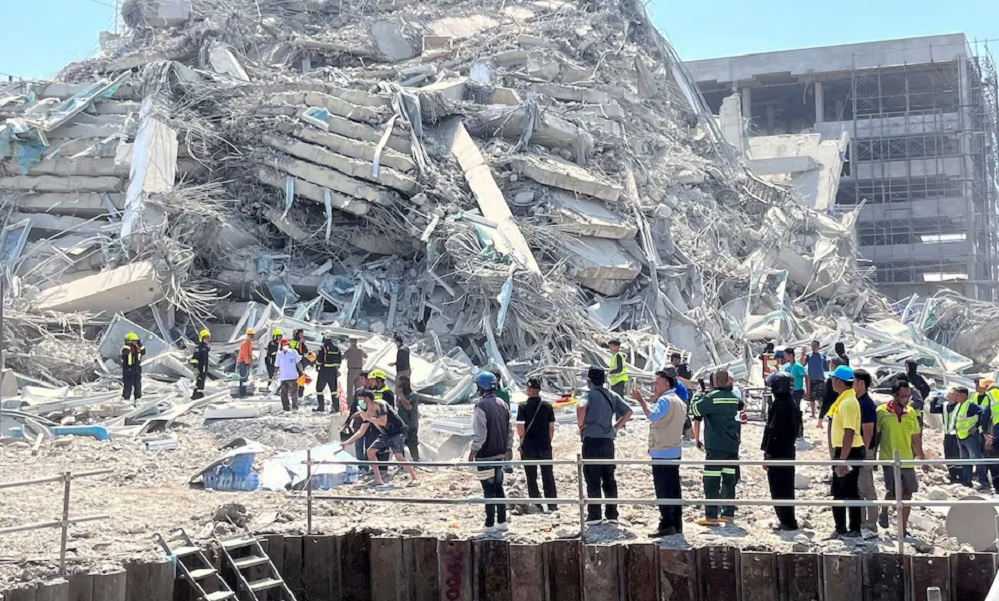
A powerful earthquake rocked Southeast Asia on Friday, killing several people, bringing down a skyscraper under construction in Bangkok and toppling buildings in neighbouring Myanmar, where the ruling junta declared a state of emergency in some areas.
At least three people were killed in the town of Taungoo in Myanmar when a mosque partially collapsed, witnesses said, while local media reported that at least two people died and 20 were injured after a hotel collapsed in Aung Ban, Reuters reported.
In Thailand, at least one person was killed and dozens of workers were rescued from under the rubble of the skyscraper that had been under construction in Bangkok, Thailand’s National Institute of Emergency Medicine said.
Bangkok’s city authorities declared the capital a disaster-stricken area, saying they needed to assess and monitor damaged areas, and assist people who might still be at risk.
In Bangkok, people ran out onto the streets in panic, many of them hotel guests in bathrobes and swimming costumes as water cascaded down from an elevated pool at a luxury hotel, witnesses said.
The United States Geological Survey (USGS) said the quake, which struck at lunchtime, was of 7.7 magnitude and at a depth of 10 km (6.2 miles). It was followed by a powerful aftershock.
The epicentre was about 17.2 km from the Myanmar city of Mandalay, which has a population of about 1.5 million.
Myanmar’s ruling military declared a state of emergency in multiple regions.
“The state will make inquiries on the situation quickly and conduct rescue operations along with providing humanitarian aid,” it said on the Telegram messaging app.
Mandalay is Myanmar’s ancient royal capital and at the centre of the country’s Buddhist heartland.
Social media posts showed collapsed buildings and debris strewn across streets in the city. Reuters could not immediately verify the posts.
One witness in the city told Reuters: “We all ran out of the house as everything started shaking. I witnessed a five-storey building collapse in front of my eyes. Everyone in my town is out on the road and no one dares to go back inside buildings.”
Another witness in the city, Htet Naing Oo, told Reuters that a tea shop had collapsed with several people trapped inside. “We couldn’t go in,” she said. “The situation is very bad.”
At least three people died after a mosque in Taungoo partially collapsed, two eyewitnesses told Reuters.
“We were saying prayers when the shaking started… Three died on the spot,” said one of two people who spoke to Reuters.
Local media reported a hotel in Aung Ban, in Shan state, crumbled into rubble, with one outlet, the Democratic Voice of Burma, reporting two people had died and 20 were trapped.
Video and images posted by Myanmar Now showed a roof cratered at a market in the capital, Naypyitaw.
In Mandalay, the outlet’s images showed a clock tower had collapsed and part of the wall by Mandalay Palace was in ruins.
China’s Xinhua news agency said strong tremors were felt in southwestern Yunnan province, which borders Myanmar, but there were no reports of casualties.
Witnesses contacted in Yangon, Myanmar’s largest city, said many people ran out of buildings.
OFFICE TOWER SHAKES IN BANGKOK
One office tower in downtown Bangkok swayed from side to side for at least two minutes, with doors and windows creaking loudly, witnesses said.
Hundreds of employees filed out via emergency stairs as some shocked and panicked workers froze. Loud shrieks could be heard as the building continued to sway.
Outside, hundreds gathered in the afternoon sun, while staff with medical kits found office chairs for the elderly and people in shock.
China’s Xinhua news agency said strong tremors were felt in southwestern Yunnan province, which borders Myanmar, but there were no reports of casualties.
Regional
Iran ready for indirect talks with US, Khamenei aide says
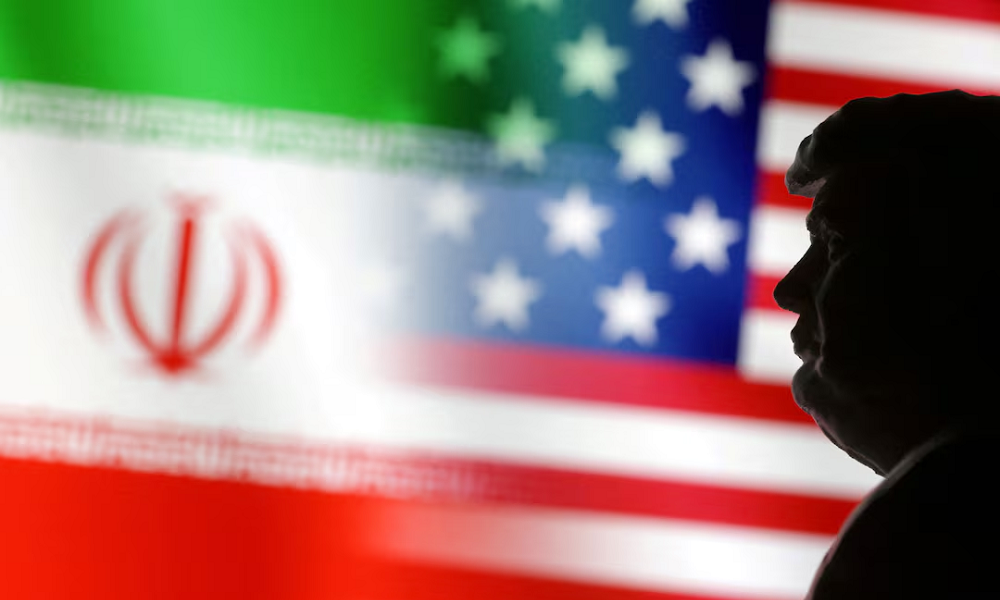
Kamal Kharrazi, an adviser to Iran’s supreme leader, said on Thursday Tehran has not closed all doors to resolve its disputes with the United States and is ready for indirect negotiations with Washington.
Tehran has so far rebuffed U.S. President Donald Trump’s warning it to make a deal or face military consequences. Supreme Leader Ayatollah Ali Khamenei called the message deceptive and Foreign Minister Abbas Araqchi said talks are impossible unless Washington changes its “maximum pressure” policy.
“The Islamic Republic has not closed all doors. It is ready for indirect negotiations with the United States in order to evaluate the other party, state its own conditions and make the appropriate decision,” Kharrazi said, according to the semi-official Iranian Students News Agency.
Iran is meant to soon reply to Trump’s letter, with Araqchi saying last week that Tehran would take into consideration both Trump’s threat and opportunities in its response.
In his first 2017-21 term, Trump withdrew the U.S. from a 2015 deal between Iran and world powers that placed strict limits on Tehran’s disputed nuclear activities in exchange for sanctions relief.
After Trump pulled out in 2018 and reimposed sweeping U.S. sanctions, the Islamic Republic breached and has since far surpassed those limits in its escalating programme of uranium enrichment.
Western powers accuse Iran of having an clandestine agenda to develop nuclear weapons capability by enriching uranium to a high level of fissile purity, above what they say is justifiable for a civilian atomic energy programme.
(Reuters)
Regional
Pakistan, China in talks about security for Chinese nationals
Chinese nationals have been targeted by separatist militants who believe Beijing is helping Pakistan exploit minerals in Balochistan
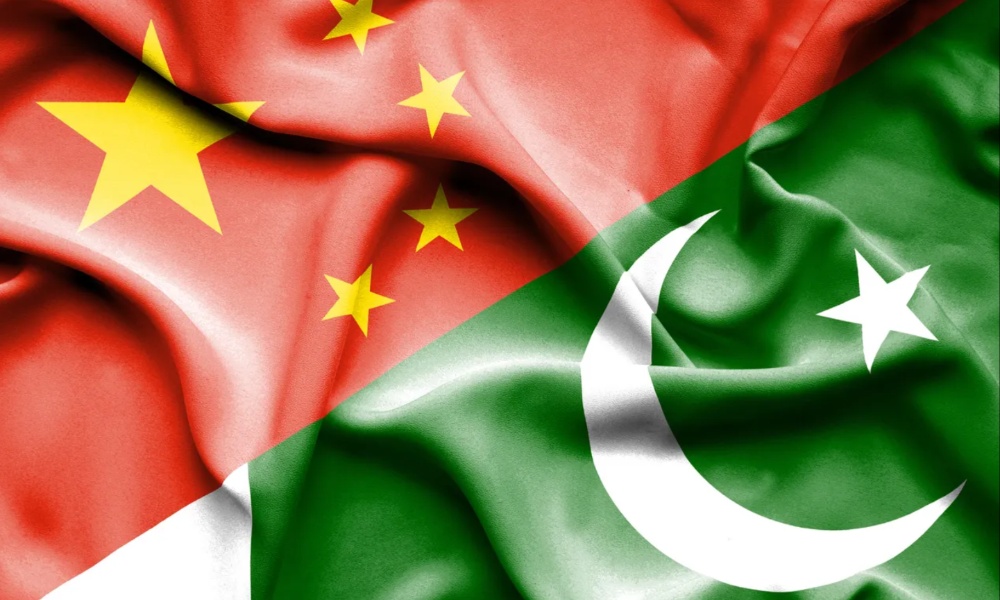
Pakistan and China’s discussions about security measures to protect Chinese nationals working in the South Asian country are a work in progress, Islamabad’s ambassador to Beijing said on Wednesday.
Chinese nationals have been in the crosshairs of separatist militants who believe Beijing is helping Pakistan exploit minerals in the underdeveloped southwestern province of Balochistan, where China has a strategic port and mining interests, Reuters reported.
It is Pakistan’s “national responsibility” and the country is “doing everything possible”, Ambassador Khalil Hashmi told reporters at the sidelines of the Boao Forum in China’s Hainan province.
“I think our two countries work very closely in terms of information sharing, in terms of developing the standard operating procedures” to ensure Chinese nationals working in Pakistan are safe, he said.
“We keep our Chinese friends informed of the steps that we are taking, so it’s a work in progress.”
Beijing has been pushing Pakistan to allow its own security staff to provide protection to thousands of Chinese citizens working there, frustrated by the string of attacks on its citizens.
The push came after a bombing at the Karachi airport last October killed two Chinese engineers who were returning there to work at a power plant.
Hashmi said those talks are ongoing, with a high degree of trust between both countries.
“It’s a complex security environment,” he said, “We have the capability to resolve, to counter and combat and defeat these terrorist forces.”
-

 International Sports5 days ago
International Sports5 days agoIPL 2025: Sunrisers on a batting rampage; triumph over Rajasthan Royals
-

 Latest News5 days ago
Latest News5 days agoEU says girls’ education crucial for Afghanistan’s long-term prosperity
-

 Sport5 days ago
Sport5 days agoACB names Afghanistan A squad for tri-nation series
-
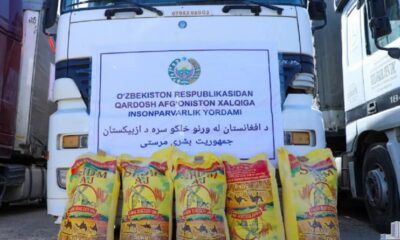
 Latest News5 days ago
Latest News5 days agoUzbekistan sends essential food aid to Afghanistan
-

 International Sports4 days ago
International Sports4 days agoIPL 2025: Last over drama; Ashutosh Sharma clinches win for Delhi Capitals
-
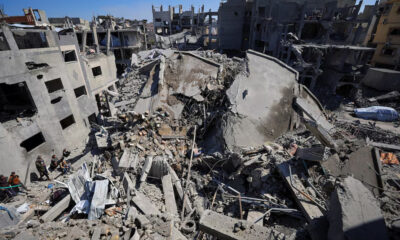
 Regional4 days ago
Regional4 days agoEgypt makes new proposal to restore Gaza truce as Israeli strikes kill 65
-

 Sport4 days ago
Sport4 days agoAfghanistan eliminated from Asian Beach Soccer Championship
-
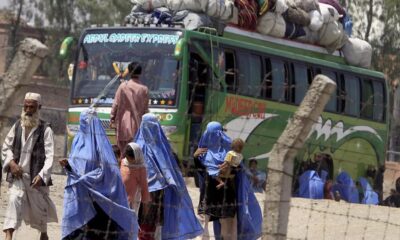
 Latest News5 days ago
Latest News5 days agoAfghans in Pakistan appeal to PM Shehbaz to stop deportations


